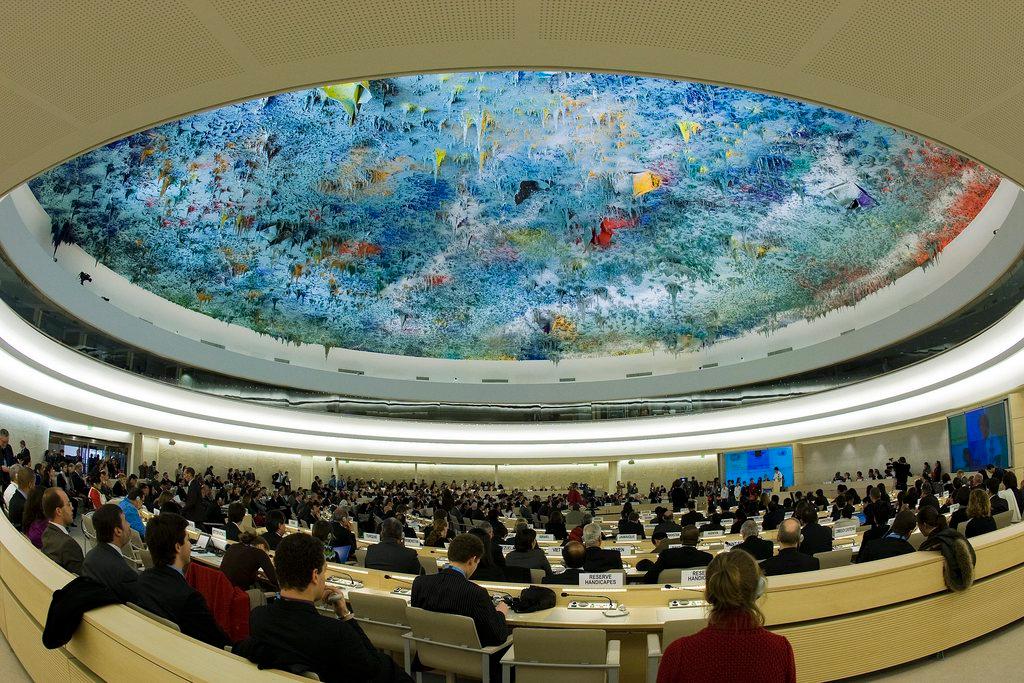
Switzerland to set up independent police complaints commission

Switzerland has agreed to establish an independent complaints mechanism for victims of police brutality. This is one of 160 recommendations it has approved following last year's peer review of its human rights record at the United Nations in Geneva.
On Thursday, the Geneva-based UN Human Rights Council adopted the final report for Switzerland’s Universal Periodic Review (UPR),External link a process that takes place every four years. The next is due in 2022.
Switzerland has also agreed to support the creation of a mechanism for collaboration between authorities and civil society to implement UPR recommendations. A measure long desired by a Platform of 80 NGOs.
+ Switzerland defended its human rights record before the UN
The Swiss authorities meanwhile rejected 90 other recommendations by states concerning its rights record.
A platform of Swiss NGOExternal links described Switzerland’s final report as “mixed” overall. The Swiss branch of Amnesty International welcomed commitment to create a truly independent national human rights institution in accordance with the Paris Principles (which set the framework for such an institution). But the NGO criticized Switzerland’s hesitancy to take on board changes to ensure popular initiatives are compatible with international law.
During Switzerland’s presentation to the UN rights council last year several states urged greater efforts to fight racism, to stop violence against women and to improve the integration of migrants. Bern has agreed to do more to combat discrimination.
The Swiss authorities also say they plan to launch independent investigations into alleged cases of excessive use of force during the explusion of illegal immigrants. They have also acknowledged the need for tougher penalties against human trafficking.

In compliance with the JTI standards
More: SWI swissinfo.ch certified by the Journalism Trust Initiative





























You can find an overview of ongoing debates with our journalists here . Please join us!
If you want to start a conversation about a topic raised in this article or want to report factual errors, email us at english@swissinfo.ch.